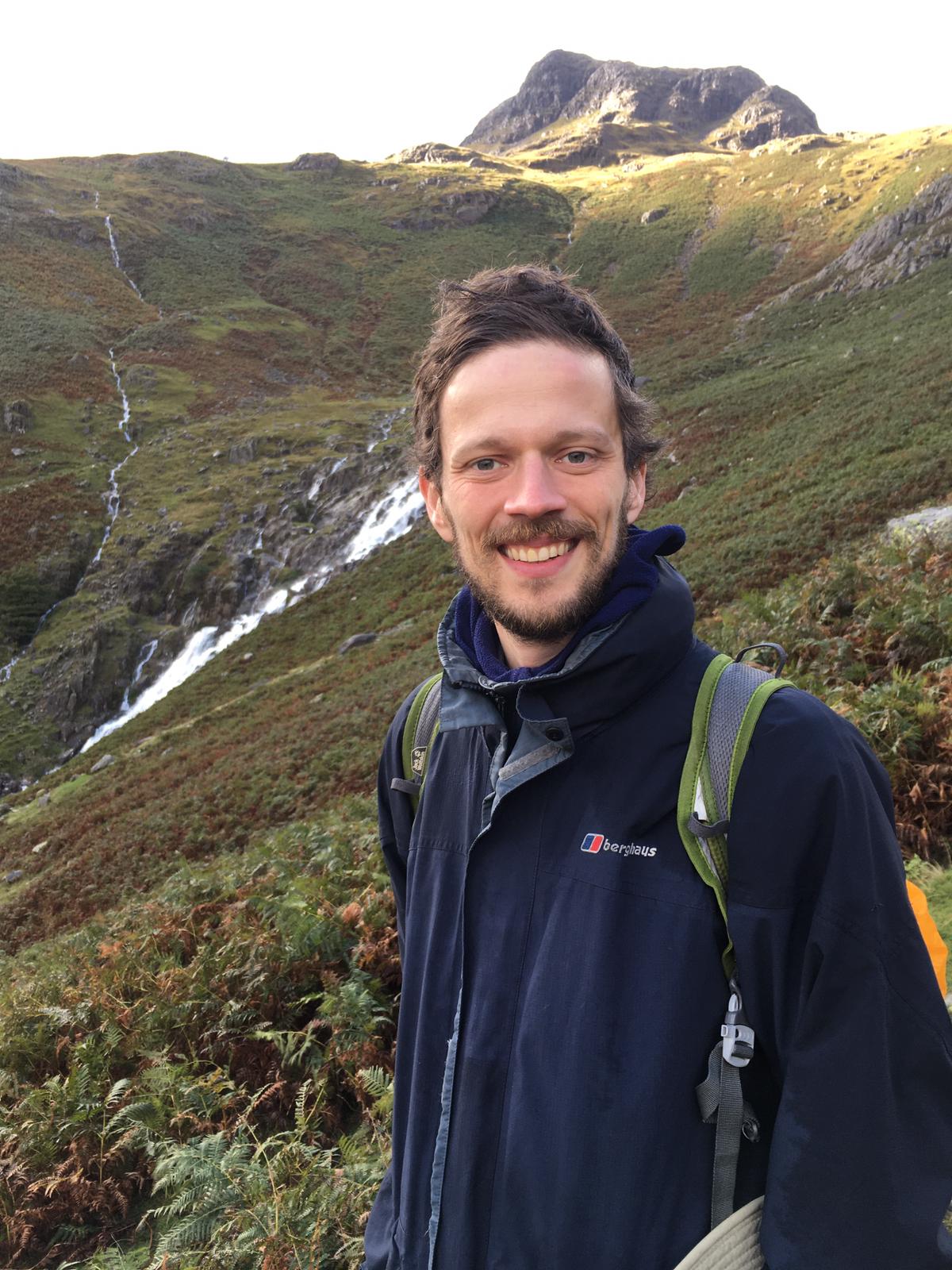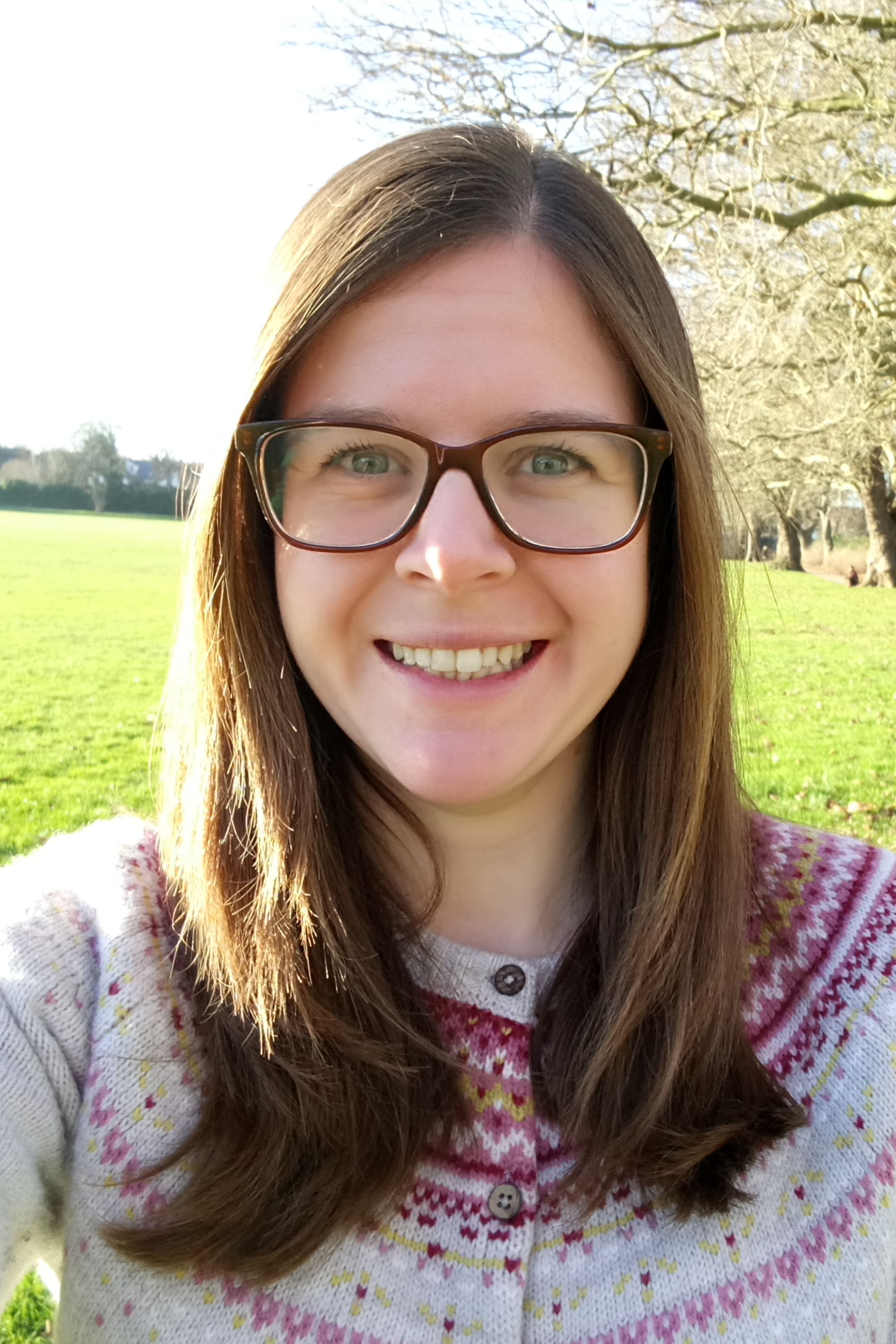Three climate change and environment researchers have joined the Grantham Lectureship programme, bringing new expertise and scientific focus to the Institute. In 2021, we bade farewell to chemist Dr Andreas Kafizas and earth scientist Dr Yves Plancherel who have transitioned to academic departments at Imperial.
Profiles
- Profile: Dr Fredi Otto, Senior Lecturer in Climate Science
- Profile: Dr Ed Gryspeerdt, Royal Society University Research Fellow
- Profile: Dr Caroline Wainwright, Grantham Institute Research Fellow
 New recruit, Dr Friederike (Fredi) Otto, appeared on the TIME100 list of the 100 most influential people in 2021. She describes herself as a “physicist, wannabe-dancer [and] media-go-to-scientist”.
New recruit, Dr Friederike (Fredi) Otto, appeared on the TIME100 list of the 100 most influential people in 2021. She describes herself as a “physicist, wannabe-dancer [and] media-go-to-scientist”.
While researching the extent that climate change makes droughts, heatwaves and storms more likely or intense – known as ‘climate change attribution’ – she founded the World Weather Attribution (WWA) initiative that quickly analyses the role of climate change in individual extreme weather events, and frequently explains these findings for the media.
“Timely evidence that is trusted by scientists and policymakers has helped to change the global conversation around climate change, influencing how governments plan to adapt to the coming environmental changes and paving the way for legal action against fossil fuel companies,” she says.
In her personal life, she is mum to a “confident and well rounded” 12-year old son and Skyler, a Labrador-collie cross. Dr Otto is “proud to be part of the queer LGBT+ community”, displaying a rainbow in her Twitter bio @FrediOtto, and she unwinds by reading “queer romance novels” by one of her favourite authors, Alexis Hall.
Dr Otto earned her doctorate from the Free University Berlin and before joining Imperial, she was Associate Director of the Environmental Change Institute at the University of Oxford. Dr Otto is an author for the Intergovernmental Panel on Climate Change (IPCC) and was highlighted as one of the top 10 people who made a difference in science in 2021, by the journal Nature.
 Reading about quarks and galaxies in New Scientist were a childhood inspiration for Dr Ed Gryspeerdt, but he “found these things felt very far away”, turning his love of science instead to studying more “present and immediate” clouds, weather and climate.
Reading about quarks and galaxies in New Scientist were a childhood inspiration for Dr Ed Gryspeerdt, but he “found these things felt very far away”, turning his love of science instead to studying more “present and immediate” clouds, weather and climate.
Cloud fact: Droplets and ice crystals form on aerosols, little ‘seeds’ around which water accumulates. “There are many natural aerosols that are good at helping droplets and crystals form, such as desert dust, chemicals emitted by trees and even some types of bacteria,” Dr Gryspeerdt says.
However, it’s the clouds produced by fossil fuels burned to power ships – which contain airborne particles and chemicals including sulphur – that Dr Gryspeerdt studies, because understanding these can help to make more accurate climate models. Tracking the long thin clouds that trail behind ships is “like an experiment that would be impossible to do otherwise, [because] we cannot inject sulphate aerosols into the atmosphere at such scale to see what happens”, he says.
Dr Gryspeerdt has a passion for cycling, sailing, walking in the Lake District and engaging the public with climate science, including at Imperial’s annual public science celebration: the Great Exhibition Road Festival, Follow his work at www.cloudsandclimate.com and @CloudsClimate.
 “I find people have heard about melting glaciers and bigger storms through the media, but climate impacts in developing countries often get less coverage,” says Dr Caroline Wainwright.
“I find people have heard about melting glaciers and bigger storms through the media, but climate impacts in developing countries often get less coverage,” says Dr Caroline Wainwright.
“Reliable rainfall is so fundamental to people’s livelihoods in Africa,” she discovered on a volunteering trip to Uganda, where building a water storage tank meant villagers “didn’t have to make the two-hour round trip to the spring every day and children could be on time to school,” and seasonal rainfall has an impact on crops, health and diseases.
Her research led her to develop a tool that enables researchers to identify the beginning and end of rainy seasons across the tropics, study how the seasonality has changed over time, and identify long-term trends across Africa.
She joined the Grantham Institute at Imperial College London from the University of Reading, not just for its reputation for “excellent research”, but also the “strong focus on communication and policy”.
Another lover of the great outdoors, Dr Wainwright has enjoyed discovering rivers around Berkshire and the sea off the coast of Wales on her paddleboard. But, she would take something practical like her knitting to a desert island, saying: “I’ve been working on a jumper for about two years so might actually finish it…!”
Contact us
General enquiries: grantham@imperial.ac.uk
Media: grantham.media@imperial.ac.uk
Phone us on: +44 (0)20 7594 9666
Privacy Notice
View the Grantham Institute Privacy Notice.